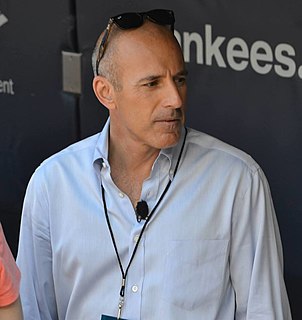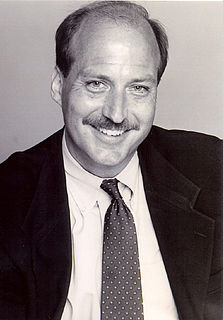A Quote by Peter Lynch
Absent a lot of surprises, stocks are relatively predictable over twenty years. As to whether they're going to be higher or lower in two to three years, you might as well flip a coin to decide.
Related Quotes
Twenty to thirty years ago, who was making documentary films? Nobody. Well, relatively few people. It was an art form that had limited theatrical distribution, if any at all. Some television distribution, but relatively small audiences regardless. And in the intervening years it's become more and more popular with a lot of people.
If you expect to be a net saver during the next 5 years, should you hope for a higher or lower stock market during that period? Many investors get this one wrong. Even though they are going to be net buyers of stocks for many years to come, they are elated when stock prices rise and depressed when they fall. This reaction makes no sense. Only those who will be sellers of equities in the near future should be happy at seeing stocks rise. Prospective purchasers should much prefer sinking prices.
I read the other day that Minor White said it takes twenty years to become a photographer. I think that is a bit of an exaggeration. I would say, judging from myself, that it takes at least eight or nine years. But it does not take any longer than it takes to learn to play the piano or the violin. If it takes twenty years, you might as well forget about it!
I think that the current climate enables a lot of musicians to do relatively well. Twenty-five years ago, you could be a bass player in a folk-rock band and do pretty well - that sort of means that you're going to have to go get a day job. But a lot of my friends have learned how to write classical music for movies and produce other people and do remixes, and DJ and go on tour, and do all these different things. The more diverse their approach, the better their chances of actually having a career.
What has happened is that we have seen a shift in the past twenty years in the very concept of hacking. So hacking twenty years ago was a neutral, positive concept. Somebody who was a hacker was someone with advanced computer skills, which could expose vulnerabilities and could explain why systems worked well or worked badly and they were generally regarded as an asset. Over the past twenty years, a combination of media and law enforcement has changed the perception of the concept so that it has almost always, if not invariably, a pejorative sense attached.
































